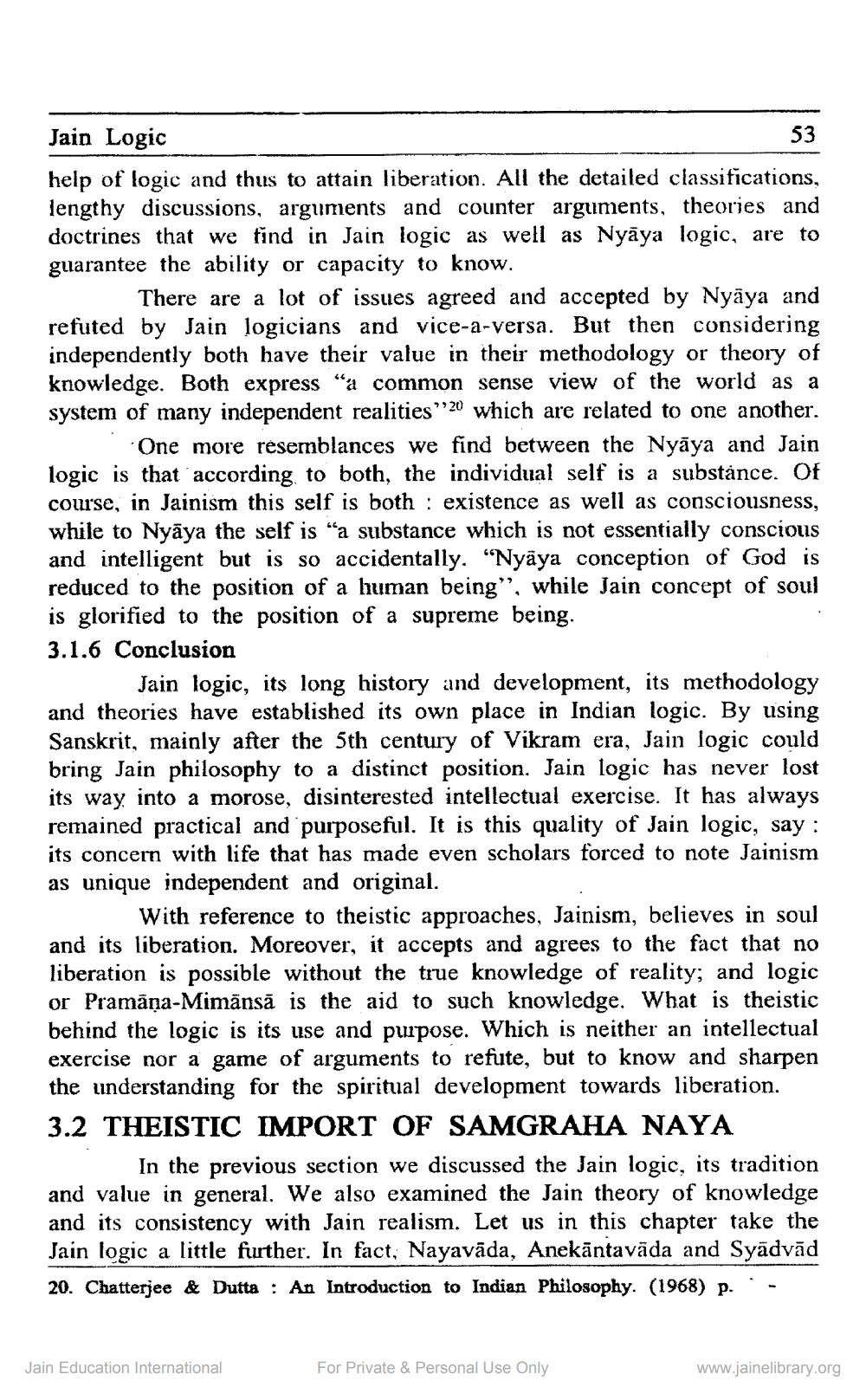________________
Jain Logic
53 help of logic and thus to attain liberation. All the detailed classifications, lengthy discussions, arguments and counter arguments, theories and doctrines that we find in Jain logic as well as Nyāya logic, are to guarantee the ability or capacity to know.
There are a lot of issues agreed and accepted by Nyāya and refuted by Jain logicians and vice-a-versa. But then considering independently both have their value in their methodology or theory of knowledge. Both express "a common sense view of the world as a system of many independent realities"20 which are related to one another.
One more resemblances we find between the Nyāya and Jain logic is that according to both, the individual self is a substance. Of course, in Jainism this self is both : existence as well as consciousness, while to Nyāya the self is “a substance which is not essentially conscious and intelligent but is so accidentally. "Nyāya conception of God is reduced to the position of a human being”, while Jain concept of soul is glorified to the position of a supreme being. 3.1.6 Conclusion
Jain logic, its long history and development, its methodology and theories have established its own place in Indian logic. By using Sanskrit, mainly after the 5th century of Vikram era, Jain logic could bring Jain philosophy to a distinct position. Jain logic has never lost its way into a morose, disinterested intellectual exercise. It has always remained practical and purposeful. It is this quality of Jain logic, say: its concern with life that has made even scholars forced to note Jainism as unique independent and original.
With reference to theistic approaches, Jainism, believes in soul and its liberation. Moreover, it accepts and agrees to the fact that no liberation is possible without the true knowledge of reality; and logic or Pramāņa-Mimänsă is the aid to such knowledge. What is theistic behind the logic is its use and purpose. Which is neither an intellectual exercise nor a game of arguments to refute, but to know and sharpen the understanding for the spiritual development towards liberation. 3.2 THEISTIC IMPORT OF SAMGRAHA NAYA
In the previous section we discussed the Jain logic, its tradition and value in general. We also examined the Jain theory of knowledge and its consistency with Jain realism. Let us in this chapter take the Jain logic a little further. In fact, Nayavāda, Anekāntavāda and Syādvad 20. Chatterjee & Dutta : An Introduction to Indian Philosophy. (1968) p." -
Jain Education International
For Private & Personal Use Only
www.jainelibrary.org




